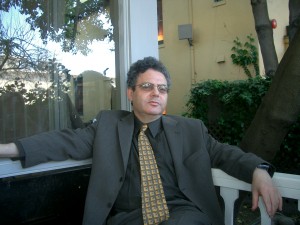Bio
 Bertrand Meyer is Professor of Software Engineering and Provost at the Constructor Institute in Schaffhausen, Switzerland and Chief Architect of Eiffel Software (based in California). From the end of 2001 to the beginning of 2016 he was Professor of Software Engineering at ETH Zurich, the Swiss Federal Institute of Software Engineering.
Bertrand Meyer is Professor of Software Engineering and Provost at the Constructor Institute in Schaffhausen, Switzerland and Chief Architect of Eiffel Software (based in California). From the end of 2001 to the beginning of 2016 he was Professor of Software Engineering at ETH Zurich, the Swiss Federal Institute of Software Engineering.
He is the initial designer of the Eiffel method and language and has continued to participate in its evolution. He also directed the development of the EiffelStudio environment, compiler, tools and libraries through their successive versions.
His most recent book is the Handbook of Business and Requirements Analysis (Springer, 2022), a comprehensive review of requirements analysis techniques, including a standard plan for requirements document meant to replace the obsolete 1998 IEEE standard. The book’s page contains sample chapters and supplementary material.
The previous book (also Springer) was Agile! The Good, the Hype and the Ugly (2014), a presentation and critical analysis of agile methods; and Touch of Class: Learning to Program Well, Using Object Technology and Contracts (2009), an introductory programming textbook based on several years of teaching introductory programming at ETH and Innopolis (see Amazon page and Springer page). His latest book, to be published in May of 2022 (again by Springer), is a new take on requirements doubling down as a textbook: Handbook of Requirements and Business Analysis. Information about the book and supplementary material including slides will shortly be available at requirements.bertrandmeyer.com.
Earlier books include Object-Oriented Software Construction, (a general presentation of object technology, winner of the Jolt Award); Eiffel: The Language, (description of the Eiffel language); Object Success (a discussion of object technology for managers); Reusable Software (a discussion of reuse issues and solutions); Introduction to the Theory of Programming Languages. He has also authored numerous articles (see publication list) and edited or co-edited several dozen conference proceedings”.
He has been involved in a number of start-ups, most recently Propulsion Academy, Switzerland’s first coding academy, and Expertyze, a network of international experts on software technology with a particular emphasis on litigation support,
Other activities include: chair of the TOOLS conference series ; director of the LASER summer school on software engineering (taking place every year since 2004 in Elba island, Italy); member of the IFIP Working Group 2.3 on Programming Methodology; member of the French Academy of Technologies. He is also active as a consultant (object-oriented system design, architectural reviews, technology assessment, patents and software litigation), trainer in object technology and other software topics, and conference speaker. Awards include ACM Software System Award, Fellow of the ACM, Dahl-Nygaard Prize, Harlan D. Mills Prize, and honorary doctorates from the University of York in the UK and the Technical University (ITMO) in Saint Petersburg.
Prior to founding Eiffel Software in 1985, Meyer had a 9-year technical and managerial career at EDF, and was for three years on the faculty at the University of California. His experience with object technology through the Simula language, as well as early work on abstract data types and formal specification (including participation in the first versions of the Z specification language) provided some of the background for the development of Eiffel.
His research covers many different aspects of software engineering but with a single unifying theme: how to produce high-quality software (see Web site of the ETH Chair of Software Engineering).




 Informatics Europe
Informatics Europe LASER summer school
LASER summer school Propulsion Academy
Propulsion Academy
[…] SEMAT (Software Engineering Method and Theory), launched in October’09 by Ivar Jacobson, Bertrand Meyer and Richard Soley, is trying to recognize the fundamental problems and to develop a sound and […]
[…] segundo de los principios, Open-Closed (Abierto/Cerrado), cuyo nombre se lo debemos a Bertrand Meyer. Básicamente nos recomienda que cuando se pretende introducir un nuevo comportamiento en un […]